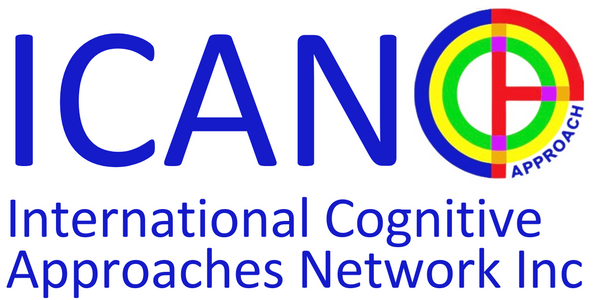
Bridging the Gap in Cognitive Rehabilitation: Embracing CO-OP in TBI Rehab and Beyond
Share
This blog is was provided by Katie Krauseneck, OTRL, CBIST-AP, from Community Connections for Independent Living, specializing in TBI rehabilitation. Her work integrates CO-OP to empower clients and improve outcomes, bridging research with practical application.
A few years ago, I found myself at a pivotal moment in my career. With a solid understanding of traumatic brain injury (TBI) and a track record of helping adult clients reintegrate into their communities, return to work, and manage their daily lives, I was ready to deepen my knowledge. Despite my confidence in general practice, I realized that there was more to learn about the science behind cognitive rehabilitation. My quest for systematic, evidence-based strategies led me to the Cognitive Rehabilitation course offered by the American Congress of Rehabilitation Medicine Brain Injury Interdisciplinary Special Interest Group (ACRM BI-ISIG), and it was here that I encountered a game-changing approach: the Cognitive Orientation to Daily Occupational Performance (CO-OP).
The CO-OP Approach: A Paradigm Shift for TBI Intervention
CO-OP is a client-centered, performance-based metacognitive strategy that stands out for its systematic, top-down approach to teaching problem solving skills. The theoretical foundation is based on neuroplasticity and provision of experiences and environments that enrich neural networks. I would come to learn that the core concepts of CO-OP closely align with the philosophy of my practice and the values of the organization where I serve as the Director of Clinical Services. The methodology's emphasis on empowering clients to actively engage in their own problem-solving resonated deeply with me and contrasts with mainstream medical models.
Key Foundational Concepts of CO-OP:
- Cognitive Strategy Use: Teaching clients to use specific strategies to address their challenges, enhancing their ability to perform daily tasks effectively. This includes domain specific strategies and the global strategy of Goal-Plan-Do-Check (GPDC); a structured approach to problem solving that encourages self-monitoring and active participation in identifying breakdowns in performance.
- Guided Discovery: A technique where therapists use open-ended questions and cues to help clients discover solutions on their own rather than providing direct answers.
- Client Centered Goals: Occupation based goals that are set by the person served and their close relations that reflect tasks that they need to do or want to do.
A Journey of Learning and Certification
My journey with CO-OP began with the ICANCOOP website and certification courses which included submission of case studies and a brief but engaging encounter with Helen Polatajko, PhD, OT(C), FCAOT, FCAHS, one of the pioneers of CO-OP. Over the course of two years, I delved deeper into this approach, expanding my understanding and practical application. This commitment to learning was not just a personal endeavor but a professional evolution, aimed at bridging the gap between academic knowledge and real-world practice; between cognitive deficits, the unique experiences of TBI survivors, and goal directed action. For example, my adult clients identified goals and established plans for medication management, saving money for a long-term expense, and home management routines. Based on my experience, CO-OP has also been helpful in evaluating a person’s awareness of their strengths and challenges using the Canadian Occupational Performance Measure (COPM) to rate their level of performance and satisfaction with named tasks. Impaired self-awareness is a hallmark concern after TBI with evidence that improved awareness of deficits is correlated with better rehabilitation outcomes.
The Evidence Base
While the evidence base for CO-OP with children is well established, the application of CO-OP with adults, especially those with TBI, is still evolving. The ACRM BI-ISIG identifies metacognitive strategy training as a practice standard for use with those with mild to moderate executive functioning deficits after TBI, thus it is most appropriate for those who are able to utilize internal strategies and learn by trial and error. I am actively pursuing further involvement with the International Cognitive and Neurorehabilitation Network (ICAN) to explore this approach further and my goal is to incorporate CO-OP into my organization’s practice and eventually contribute to the growing body of research in this field.
Why More Therapists Should Explore CO-OP and Cognitive Strategies:
- Enhanced Efficacy: Integrating CO-OP and other cognitive strategies can improve the effectiveness of therapy by aligning treatment with evidence-based practices and making the process fun and engaging.
- Client Empowerment: This approach empowers clients to be more engaged in their own rehabilitation, fostering greater independence by establishing plans and solutions on their own terms, in their own words.
- Bridging the Gap: There is often a disconnect between academic learning and practical application and exposure to systematic approaches like CO-OP can help bridge this gap, ensuring that our practice is both current and effective. Two main objectives of the CO-OP approach are to facilitate generalization and transfer of skills which was demonstrated in the TBI population by improvement on untrained tasks in multiple clinical studies.
The Path Forward
My aim is to partner with my clients to facilitate improved participation in life roles, relationships, and their communities. This encompasses a range of activities and responsibilities, including initiating social contacts, pursuing leisure interests, prioritizing self-care, maintaining a living environment, seeking and retaining employment, and managing finances. These outcomes are often measured by community-based rehabilitation programs and are essential for a holistic approach to rehabilitation. Embracing systematic, evidence-based approaches like CO-OP is one way to promote re-engagement and support clients in achieving these personal goals. As we move forward, it is crucial to learn more about these methods and continually seek innovative solutions that enhance our practice. It’s not just about using new techniques but about transforming our approach to better serve our clients and facilitate their journey towards greater independence and fulfillment. Through continued exploration and application of CO-OP, we are poised to advance the field and make a lasting difference in the lives of those we support.
References:
Cicerone, K. D., Becker, F. D., Eberle, R., Shapiro-Rosenbaum, A., & Haskins, E. C. (2022). The ACRM Cognitive Rehabilitation Manual & Textbook: Translating Evidence-based recommendations into practice. ACRM American Congress of Rehabilitation Medicine.
Dawson, D. R., McEwen, S. E., & Polatajko, H. J. (2017). Cognitive orientation to daily occupational performance in occupational therapy: Using the co-op approach to enable participation across the lifespan. AOTA Press.
Lezak, M. D. & Malec, J. F., Manual for the Mayo-Portland Adaptability Inventory (MPAI-4) for Adults, Children and Adolescents, 2008; 55-65.
